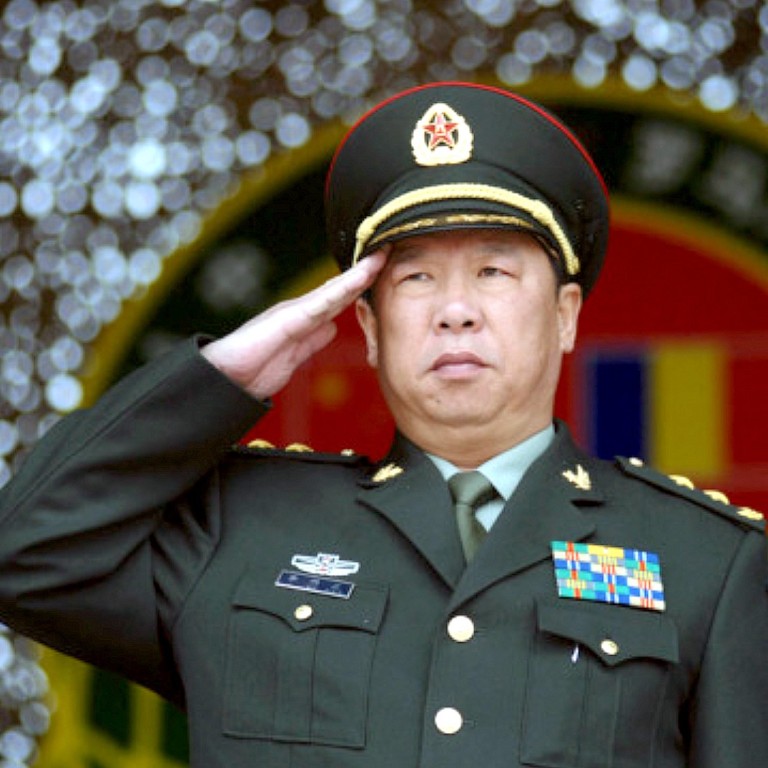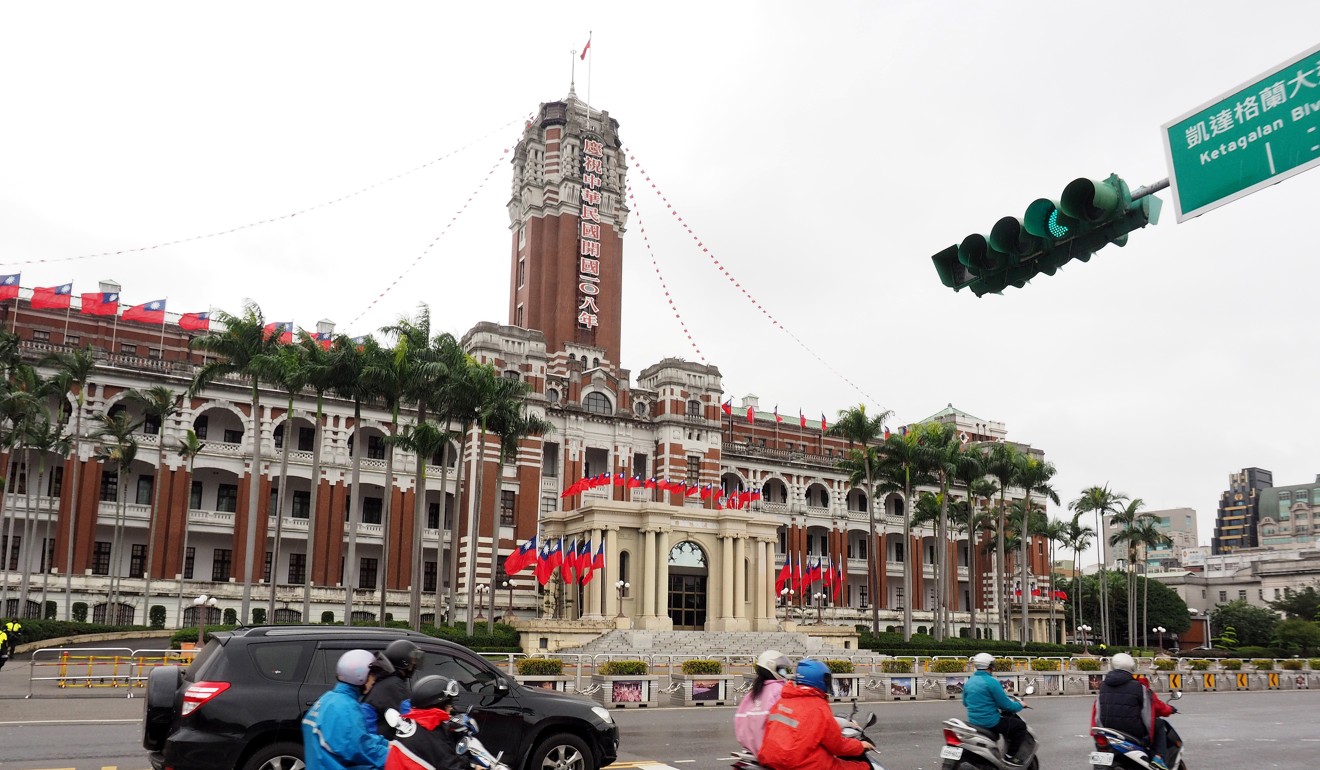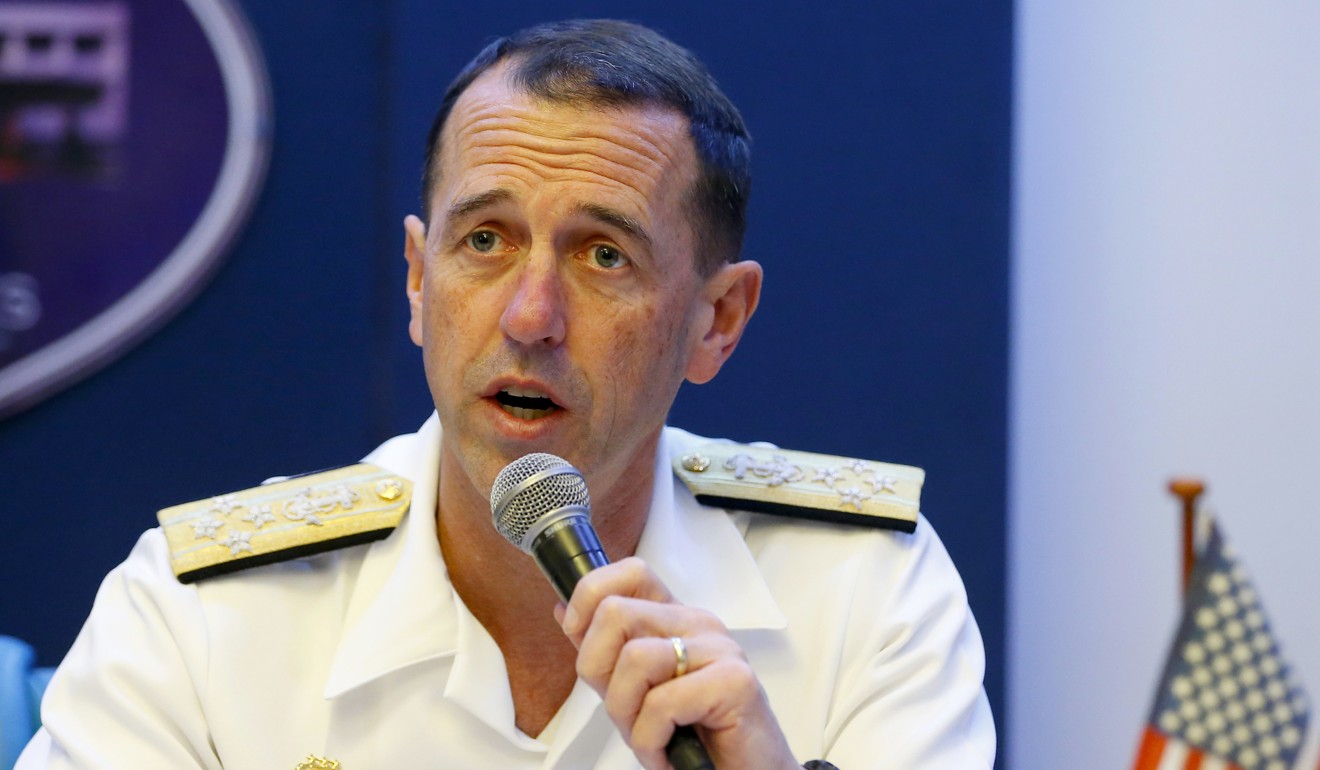
China won’t tolerate interference in Taiwan, military chief warns US
- General Li Zuocheng also called for efforts to strengthen trust and communication and manage risks during meeting with US Navy Admiral John Richardson
- Two military leaders have ‘deep exchange’ of views over the self-ruled island and the South China Sea, according to Chinese defence ministry
A top Chinese military official on Tuesday called for efforts to strengthen trust between China and the United States, but said Beijing would not tolerate “outside interference” in Taiwan affairs.
General Li Zuocheng, the PLA’s chief of the Joint Staff Department, made the remarks during a meeting in Beijing with Admiral John Richardson, the US chief of naval operations.
Richardson is in China on a three-day visit that also includes a stop in the eastern city of Nanjing, headquarters of the People’s Liberation Army Eastern Theatre Command.

The two military leaders also had a “deep exchange” of views over Taiwan and the South China Sea, according to a statement released by the Chinese defence ministry.
Li warned that China would defend its sovereignty at all costs.
“The Taiwan issue is a matter of China’s internal affairs that concerns China’s core interests and the feelings of the Chinese people across the Taiwan Strait, and China will not allow any outside interference,” Li said, according to the statement.
“If anyone wants to separate Taiwan from China, the Chinese military will safeguard the national unity at all costs so as to protect China’s sovereignty and territorial integrity.”
US Navy commander hails ‘constructive and candid’ talks with Chinese counterparts
But Li also said military ties were a key component of China-US relations, and called on both sides to improve communication.
“The ups and downs experienced during the 40 years since the establishment of Sino-US ties have shown that the mutual interests between China and the US far outweigh the differences, and that cooperation is the best choice for both sides,” said Li, who is also a member of the Central Military Commission, the military’s ruling body.
“The two militaries should respect each other, strengthen mutual trust and communication, properly manage risks and work to make military exchanges a stabiliser of the Sino-US relationship,” he said.
Under US President Donald Trump, Washington has increased its support for self-ruled Taiwan with renewed arms sales and upgraded contact between officials, drawing repeated protests from Beijing.
Chinese President Xi Jinping sees reunification with Taiwan as central to his vision of the nation’s rejuvenation and said in an address this month that Beijing would “not promise to abandon the use of force” to achieve this.
Relations with the US have also deteriorated over China’s military build-up in the contested South China Sea, where two warships came close to colliding in September.
Is Xi Jinping’s Taiwan reunification push hastening a US-China clash?
During the meeting, the US Navy commander said the United States highly valued a constructive, results-oriented relationship between the two militaries, according to the Chinese statement.
Richardson also expressed willingness to increase high-level military exchanges, strengthen mutual understanding and reduce the risk of misunderstanding and miscalculation.

It is Richardson’s second visit to China since he became the US Navy chief in 2015. His last visit in 2016 focused on frictions over the South China Sea.

